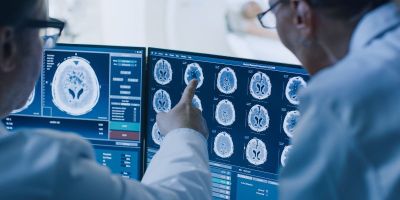New AHRC Networking Grant looks to change the pace of change

Grant will fund new networks and interdisciplinary working to drive change in disability inclusion.
Amy Russell, Wellcome Trust Fellow in the School of Medicine, has successfully in secured an AHRC Networking Grant, for her project, ‘Changing the pace of change: Disability inclusion in development responses to sexual violence for women with disabilities through arts & humanities,’ which involves building and establishing a network of partners to explore disability inclusion.
This is an interdisciplinary project involving colleagues from across Faculty of Medicine, the Cultural institute and Faculty of Arts, Humanities and Cultures, as well as working with and developing partnerships in South Africa (Stellenbosch University, African Disability Forum and Disabled Women Africa).
The grant, of £88,998, is to develop a network and ‘bring together representatives of academia, non-governmental and multilateral organisations, organisations of persons with disabilities and advocates’, which will hopefully lead to some excellent research collaborations and opportunity for follow on project funding and work.
We held an informal Q&A with Amy to discuss the project:
How did you become involved in the research subject?
I began at the University of Leeds in Religious Studies, moved to the Centre for Interdisciplinary Gender Studies and then to Leeds Institue of Health Sciences, so my work has always been interdisciplinary. My research examines health inequalities for marginalised and historically under-represented groups. Recently my focus has been the exclusion of people with learning disabilities from health research. I had been on a secondment to the WHO Disability Team, collaborating on the Global report on health equity for persons with a disability 2022. Part of that role involved reviewing evidence of health inequalities and barriers to accessing healthcare.
How did you establish your research focus:
Women with a disability experience disproportionality high levels of sexual violence and domestic violence and when they seek help from sexual and reproductive services, they often encounter staff who don't believe them or don't know how to support them. We found that globally, clinician attitude, ableism and stereotyping were identified as key barriers to health equity. Furthermore, I was reviewing evidence since 2011 when the last WHO report on disability was written and the other disillusioning fact was very little had changed in that decade, in terms of inclusion for people with disabilities and what had been tried often wasn't well evaluated and didn't present robust evidence. I began thinking about alternative methods to change clinician attitudes and how to improve the quality of the evidence that we already had while keeping it meaningful to the people who took part in the research.
How did you begin to build a network?
I was fortunate that the WHO report was written with a significant amount of consultation from global disability academics and organisations of persons with disabilities. By the end of the secondment I had a network of contacts who I knew were passionate about this topic and wanted to work on it further. I then turned to the expertise we have at Leeds and made contact with Alice, Sanjoy and Mahua who all have expertise in aspects of this work and were as committed as I was to drive change in this area.
Which areas in the University are involved with this?
Myself in Leeds Insitute of Health Sciences, Professor Alice O'Grady in School of Performance and Cultural Industries, Professor Sanjoy Bhattacharya, Head of School of History and Dr Mahua Das in International Health. We also have colleagues at Humanity & Inclusion, Disabled Women Africa, African Disability Forum and Stellenbosch University.
What are you hoping to achieve with your project?
We have plans for a scoping review which evidences the current use of arts and humanities methods for the inclusion of women and girls with disabilities in sexual and reproductive health services. We are also aiming to deliver the following:
- A collaboratively written, peer reviewed editorial/commentary aimed at academics and development practitioners on the key conceptual, theoretical and methodological challenges and innovations in utilising arts and humanities methods for disability inclusion in the development of sexual and reproductive health services.
- A research brief that contains guidance for practitioners, organisation of persons with disabilities and community activists on creating a robust evidence base for arts and humanities interventions to address barriers to sexual and reproductive health services for women and girls with disabilities.
- A social media strategy for communicating findings from the network (e.g. our own twitter account and website).
- A co-produced toolkit of best practice on changing the pace and content of conversations at international level on the improvement of disability inclusion, created by the Network and our stakeholders to address stigma and cultural taboos related to sharing the experiences of women with disabilities. It will be aimed at OPDs and NGOs and will illustrate helpful and unhelpful framing of messages; which messages can be a catalyst for change and how to sensitively address the topics of sexual violence and sexual and reproductive health in a cultural context.
The project will end by holding a webinar, allowing members to report our findings, inviting those academics, activists, NGO and OPD leaders and representatives of multilateral organisations like the WHO to present their perspectives on the challenges of this topic and to agree the next steps for research
And finally, how do you feel about securing the grant?
I'm really pleased to get this opportunity to develop this network and to explore alternative ways of responding to this problem. When you speak to disability activists, they are exhausted, they're burnt out and the pace of change demoralises them. I have seen the best efforts of multiple parties to change attitudes and change policy, yet to date the pace of change in this area is ridiculously slow. That is why this project aims to give academics and organisations of persons with disabilities the tools to 'change the pace of change.'




